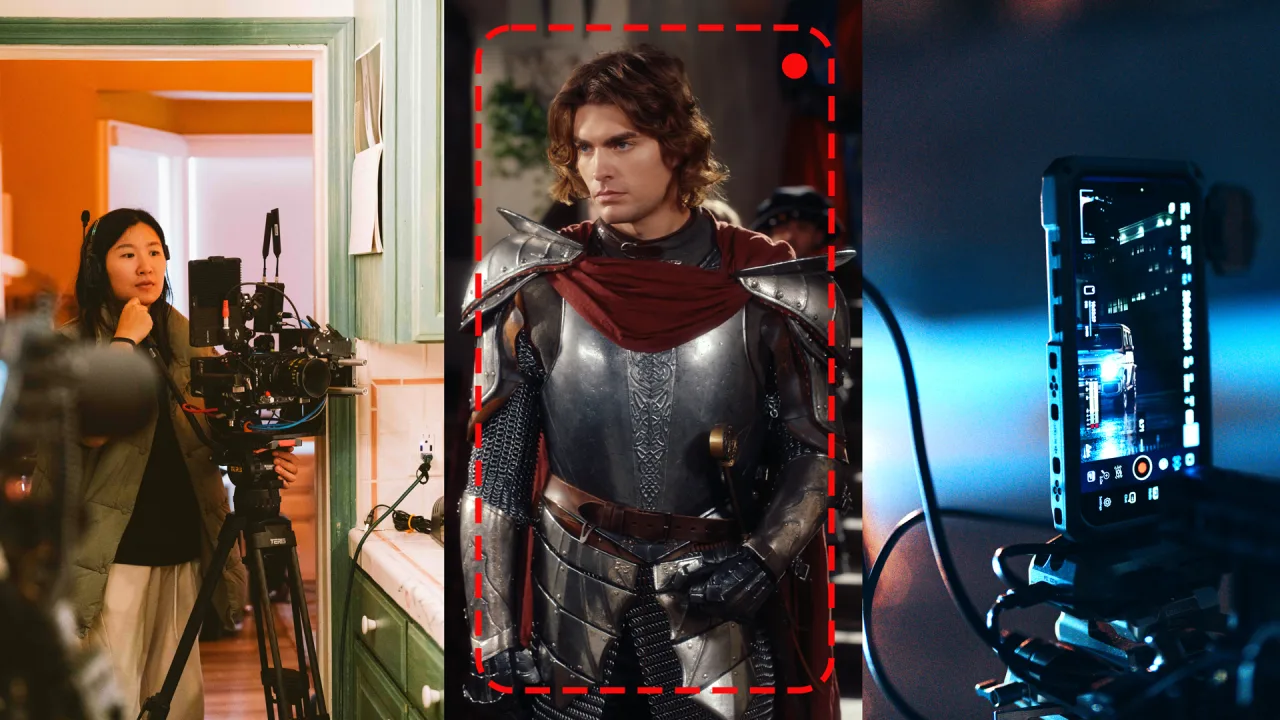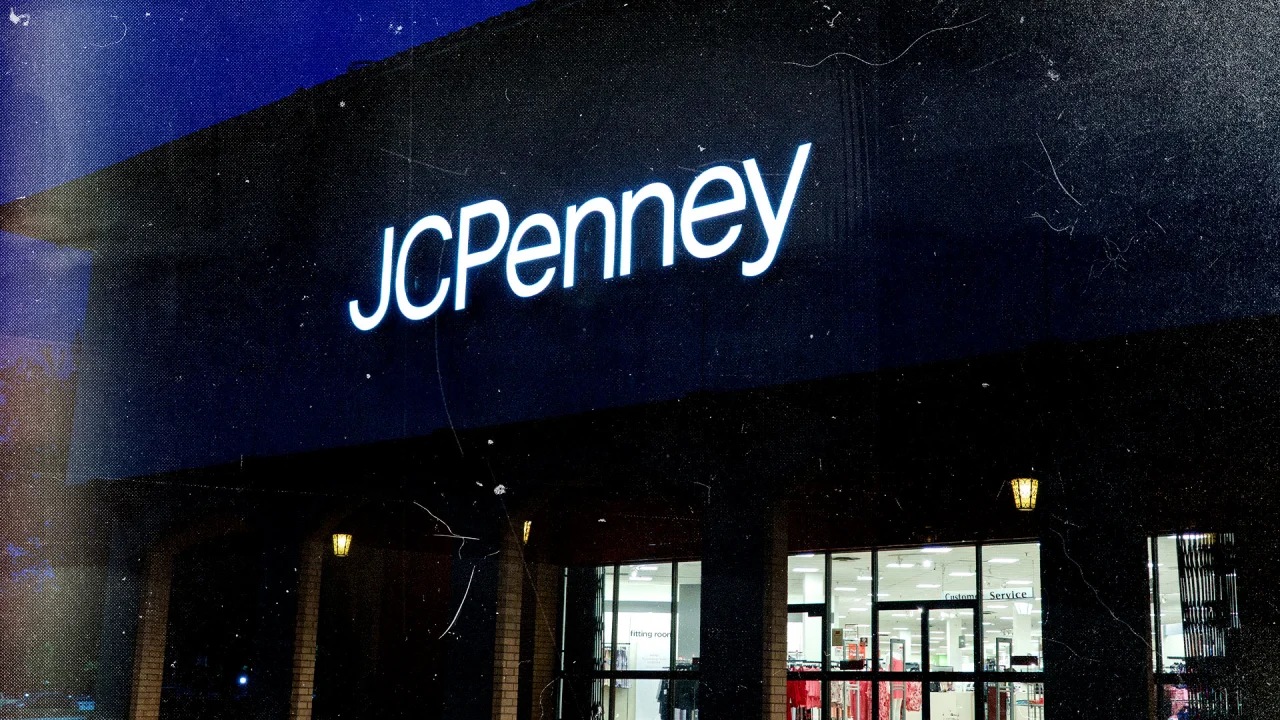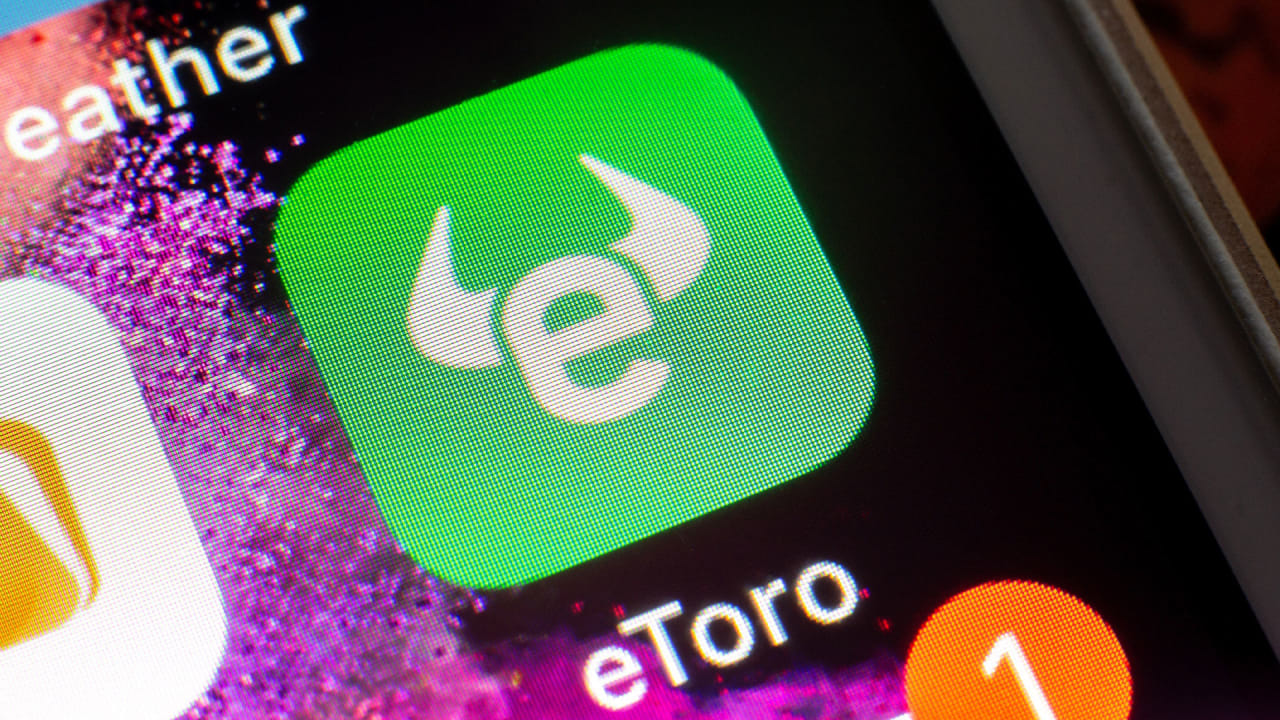The soap opera of the future is a vertical drama made for your phone. But you’ll have to pay to see the ending
In the entertainment industry, as in life, change is the only constant. It wasn’t that long ago that streaming services such as Netflix were the outsiders making waves and altering the way audiences watched movies. Today, there’s a new kid on the block rapidly growing in popularity. Vertical dramas, essentially a 90-minute soap opera broken down into one-minute episodes viewed—you guessed it—vertically on smartphones, are here to shake things up even further. (I know this firsthand as an actor who has recently worked on some of these projects.) Joey Jia, the CEO of Crazy Maple Studios, is at the forefront of this movement. His content creation company was named one of 2024’s TIME100 Most Influential Companies and has offices in Shenzhen, Beijing, Silicon Valley, Los Angeles, Canada, Mexico, and the Philippines. Under this banner, Jia created ReelShort in 2022, a short-form video-streaming app, when he realized there was an opportunity to marry growing romance book trends and Asian micro dramas. “I noticed there is a trend,” Jia told Fast Company. “People started shooting short-form content, especially five minutes long, 10 minutes long. That inspired me to have this idea: What if we revamp the video industry?” Jia decided to put stories into one-minute bite-size content, made specifically for mobile phones as a way of testing how the market would respond. Spoiler alert: It responded well. ReelShorts’s production on track to triple in 2025 as compared to 2024. While Crazy Maple Studios declined to share revenue figures, it says it’s seen impressive growth in monthly active users, from around 45 million in October to between 55 to 60 million monthly active users. Suffice it to say, it’s in demand, paving the way for a story format that might be the future of scripted entertainment. At the intersection of art and tech The growing popularity of vertical dramas could never have occurred without the proper technology in place. The first smartphone, the Simon Personal Communicator, was invented by IBM in 1992, but it would take 18 years before these devices made their way to everyone’s pockets. Apple’s iPhone, famously announced to the world by Steve Jobs in 2007, played a big role in spreading the adoption of smartphones. The next stepping stone to verticals was social media. When TikTok was first released in 2016, it further trained users to create and view videos vertically. Instagram strengthened this habit when the app released its similar Reels feature in 2020. The stage was set for professional creators to monetize this technology. How China got there first In 2019, the Chinese company iQIYI released a special feature on its app dubbed the Vertical Video Zone, which comprised 25 sets of video, all shot in portrait mode to be viewed on a mobile phone. Around the same time, the Chinese social media platform Kuaishou unveiled “Kuaishou Small Theatre” on its app. This comedy-centered, short-form content would lead to the “micro-drama” brand Xingmang Micro Drama. By 2023, the platform would have over 94 million paid users. That same year, the larger micro-drama industry in China brought in $5.3 billion, making it 70% as large as the country’s traditional film industry. According to DataEye, a Shenzhen-based research firm, micro-dramas out-earned domestic box office sales the following year, as the Los Angeles Times reported. The American company Quibi, led by Jeffrey Katzenberg and Meg Whitman, tried to put its own spin on this trend, launching in April of 2020. This app utilized “turnstyle” technology that allowed viewers to watch content both vertically and horizontally. However, its short-form videos were expensive to make, running about 10 minutes utilizing Hollywood stars. Just seven months after its creation, Quibi was forced to shut down due to low subscriber counts. ‘Emotion-driven stories,’ made for humans by humans Jia saw a potential opening in the American market and learned from Quibi’s failure. He attributes ReelShorts’s success to its focus on “emotion-driven stories.” Plot is “the missing component,” he says, “So our job is to come up with a feel-good moment, feel-good stories, and we always have data to make sure we are on the right track. So our stories are evolving.” Vertical dramas tend to use well-known, over-the-top storytelling tropes, such as enemies to lovers, Cinderella-type makeovers, and corporate revenge. Some even explore fantasy plotlines, such as werewolves and different historical eras. ReelShorts’s subscription service differs from traditional streamers because it is not a flat monthly fee. The first 10 or so episodes are free, but to see the story’s conclusion, users have to pay based on consumption. This forces writers to make sure their content is fast-paced but not so quick that the audience gets lost. “There is a fine balance between the story beats and the emotions. So this is really tricky,

In the entertainment industry, as in life, change is the only constant. It wasn’t that long ago that streaming services such as Netflix were the outsiders making waves and altering the way audiences watched movies.
Today, there’s a new kid on the block rapidly growing in popularity. Vertical dramas, essentially a 90-minute soap opera broken down into one-minute episodes viewed—you guessed it—vertically on smartphones, are here to shake things up even further. (I know this firsthand as an actor who has recently worked on some of these projects.)
Joey Jia, the CEO of Crazy Maple Studios, is at the forefront of this movement. His content creation company was named one of 2024’s TIME100 Most Influential Companies and has offices in Shenzhen, Beijing, Silicon Valley, Los Angeles, Canada, Mexico, and the Philippines.
Under this banner, Jia created ReelShort in 2022, a short-form video-streaming app, when he realized there was an opportunity to marry growing romance book trends and Asian micro dramas.
“I noticed there is a trend,” Jia told Fast Company. “People started shooting short-form content, especially five minutes long, 10 minutes long. That inspired me to have this idea: What if we revamp the video industry?”
Jia decided to put stories into one-minute bite-size content, made specifically for mobile phones as a way of testing how the market would respond.
Spoiler alert: It responded well.
ReelShorts’s production on track to triple in 2025 as compared to 2024. While Crazy Maple Studios declined to share revenue figures, it says it’s seen impressive growth in monthly active users, from around 45 million in October to between 55 to 60 million monthly active users.
Suffice it to say, it’s in demand, paving the way for a story format that might be the future of scripted entertainment.
At the intersection of art and tech
The growing popularity of vertical dramas could never have occurred without the proper technology in place.
The first smartphone, the Simon Personal Communicator, was invented by IBM in 1992, but it would take 18 years before these devices made their way to everyone’s pockets. Apple’s iPhone, famously announced to the world by Steve Jobs in 2007, played a big role in spreading the adoption of smartphones.
The next stepping stone to verticals was social media. When TikTok was first released in 2016, it further trained users to create and view videos vertically. Instagram strengthened this habit when the app released its similar Reels feature in 2020. The stage was set for professional creators to monetize this technology.
How China got there first
In 2019, the Chinese company iQIYI released a special feature on its app dubbed the Vertical Video Zone, which comprised 25 sets of video, all shot in portrait mode to be viewed on a mobile phone.
Around the same time, the Chinese social media platform Kuaishou unveiled “Kuaishou Small Theatre” on its app. This comedy-centered, short-form content would lead to the “micro-drama” brand Xingmang Micro Drama.
By 2023, the platform would have over 94 million paid users. That same year, the larger micro-drama industry in China brought in $5.3 billion, making it 70% as large as the country’s traditional film industry. According to DataEye, a Shenzhen-based research firm, micro-dramas out-earned domestic box office sales the following year, as the Los Angeles Times reported.
The American company Quibi, led by Jeffrey Katzenberg and Meg Whitman, tried to put its own spin on this trend, launching in April of 2020. This app utilized “turnstyle” technology that allowed viewers to watch content both vertically and horizontally.
However, its short-form videos were expensive to make, running about 10 minutes utilizing Hollywood stars. Just seven months after its creation, Quibi was forced to shut down due to low subscriber counts.
‘Emotion-driven stories,’ made for humans by humans
Jia saw a potential opening in the American market and learned from Quibi’s failure. He attributes ReelShorts’s success to its focus on “emotion-driven stories.”
Plot is “the missing component,” he says, “So our job is to come up with a feel-good moment, feel-good stories, and we always have data to make sure we are on the right track. So our stories are evolving.”
Vertical dramas tend to use well-known, over-the-top storytelling tropes, such as enemies to lovers, Cinderella-type makeovers, and corporate revenge. Some even explore fantasy plotlines, such as werewolves and different historical eras.
ReelShorts’s subscription service differs from traditional streamers because it is not a flat monthly fee. The first 10 or so episodes are free, but to see the story’s conclusion, users have to pay based on consumption. This forces writers to make sure their content is fast-paced but not so quick that the audience gets lost.
“There is a fine balance between the story beats and the emotions. So this is really tricky,” Jia mused.
Jia trains directors, producers, and screenwriters in-house and does not utilize artificial intelligence. “I think of creativity coming from a human being, so I don’t trust AI, to be honest,” Jia explained. He also uses simple, inexpensive sets and costumes, and unknown nonunion actors.
What does the future hold?
When asked if Jia thinks vertical dramas complement or disrupt the traditional movie and television industry, he replied: “I think it’s a disruptor. I think mobile entertainment will become a brand-new industry in the next few years. It will coexist with a traditional film industry, but it will bypass and beat the size so it gets bigger and bigger.”
He thinks colleges will in the not-so-distant future add this format to its film school curriculum.
As more and more people forgo traditional movie theaters while staying glued to their phones throughout much of the day, his predictions don’t feel that far-fetched.
Indeed, the average ReelShort user might surprise you. “We initially thought the majority of our audience is like a teenager and younger demographic—but no, it’s full spectrum,” Jia explained.
Jia has already been approached by big-name studios but finds it difficult to work with established intellectual properties because of all the rules and hoops to jump through. Verticals are inexpensive to make and move quickly, with a movie essentially completed in about 11 days.
That doesn’t mean he isn’t open to bigger collaborations.
In the next five years, Jia aims to prove that this space has merit, saying he feels there is still very much a stigma attached to it. “There’s wide opportunity here,” he says. “So the door is always open.”
Jia is not alone in this space. Shelly Caldwell founded DramaBox, a mobile TV series company, in 2022. Similarly, ShortMax, a Chinese-based media company, was created in 2023 by Jiuzhou Wenhua.
Other players in the game include FlexTV and LokShorts. Even Netflix is dipping its toe in the pool. It recently announced that for some select users, its app will begin testing a vertical video feed.
Meanwhile, ReelShort is expanding into new genres, such as action.
Undercover Prison King, the story of a private prison owner who poses as an inmate to reveal corruption, is performing very well. The recent in-person premiere of Wings of Fire: The Dragonslayer Is My Ex-Lover in Culver City successfully signaled verticals’ legitimacy to the larger City of Angels.
Jia also recently launched ReelShort Publishing House, a new division that will novelize popular romance titles on the app, a full circle moment for the man who saw the desire for this content early on. With a distribution deal with Amazon already in place, audiences may soon find themselves asking which came first, the vertical or the novel?
As the way we consume media continues to evolve, Jia’s foresight appears to have been the fulfillment of a prophecy of sorts. What direction is the future of entertainment going? It appears to be vertical.









































































































![Building A Digital PR Strategy: 10 Essential Steps for Beginners [With Examples]](https://buzzsumo.com/wp-content/uploads/2023/09/Building-A-Digital-PR-Strategy-10-Essential-Steps-for-Beginners-With-Examples-bblog-masthead.jpg)















![How to Use GA4 to Track Social Media Traffic: 6 Questions, Answers and Insights [VIDEO]](https://www.orbitmedia.com/wp-content/uploads/2023/06/ab-testing.png)

































